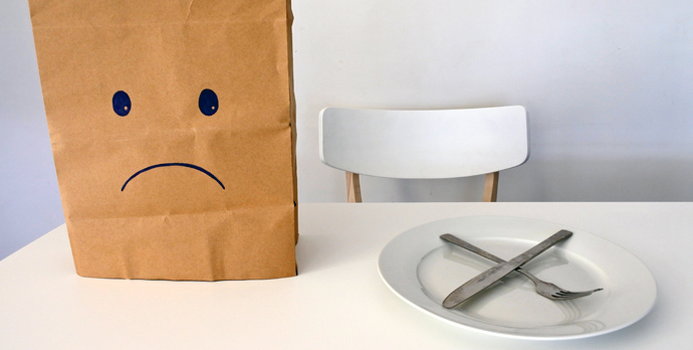The DSM-5 classifies someone as having an eating disorder if they are restricting their energy intake relative to their requirements that lead to a significantly low body weight in the context of age, sex, and development trajectory, if they have an intense fear of gaining weight or becoming fat, and if they suffer from a disturbance in how they view their body with reality.
In order to be classified as having an eating disorder, namely anorexia, you need to suffer from these things.
But, even if you don’t fall into this category, that doesn’t necessarily mean you are fine. You may still have disordered eating, despite not showing these signs.
Many people walk around today with disordered eating but don’t take it so far to show a true eating disorder. Or, they just haven’t had enough time to pass for it to become one.
Here are some of the warning signs that you may be suffering from disordered eating.
Good Food, Bad Food
While most of us do, to some degree, see food as "good’ or bad," the real problems set in when we become scared of bad food. When we can’t ever allow ourselves to indulge in a piece of cake, an ice cream cone, or a piece of pizza without feeling immense guilt over it.
While it’s good if you generally try and avoid those "bad" less healthy foods in your diet plan, when you psychologically can’t allow yourself to eat them, that’s when you know you may be on the verge of a problem.
Eating In Private
Another common sign that you may have disordered eating is if you choose to eat only in private. This can be done for a few reasons.
Some people simply feel embarrassed about eating in public for fear they will be thought of as fat and choose to eat alone while others binge eat in private — consuming larger amounts of food.
If you binge and feel uncontrollable in it, you may be actually classified as having an eating disorder, however, if you just eat a high amount of food because it feels good temporarily (but you do have the power to stop when needed), that can be a sign of disordered eating.
Basically, if you curl up with a pint of Ben & Jerry’s to treat your bad day more often than not, this could be a sign something is up.
Binge Exercising
The next sign of disordered eating? Binge exercising. When you eat a donut, do you run off to do an hour on the elliptical as soon as possible? If so, that’s a problem. This could lead you down a path to an eating disorder if you keep this behavior up.
In the meantime, it’s just going to wear your body down and worsen your relationship with food.
Neglecting True Hunger
The next sign that you may be suffering from disordered eating is if you are neglecting your true hunger. While pushing through a bit of hunger to maintain your diet is one thing, if you feel like you are constantly denying yourself food 24/7, that could be a sign of disordered eating.
If you’re hungry even after meals on your current diet plan, that diet may just be too restrictive for you.
So there you have the many signs of disordered eating. It is a fine line between disordered eating and eating disorders and one can very often lead to the next so recognizing the warning signs and taking action to get help or reframe your mind if you seem them is critical to your overall well-being.
[Image via Shutterstock]



